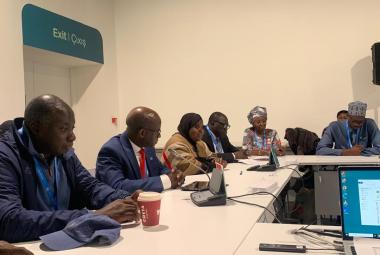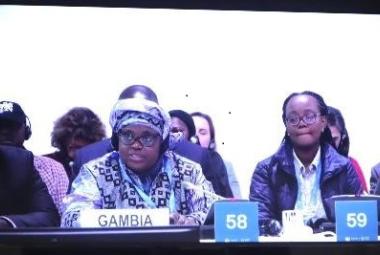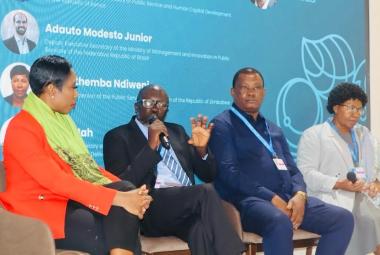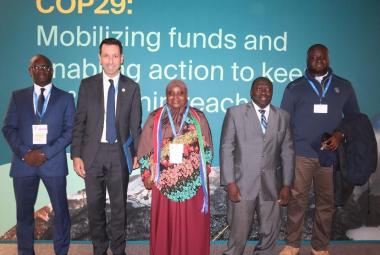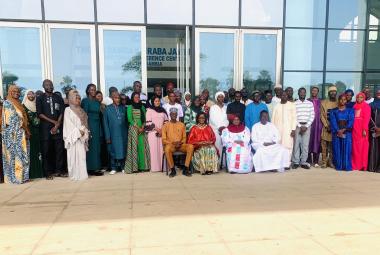At a High-Level Session on Climate Mobility in Africa at the Global Centre of Climate Mobility (GCCM) Pavilion, Deputy Permanent Secretary Mr. Bubacarr Zaidi Jallow emphasized the increasing challenges posed by climate change. He noted that with more frequent and severe climate events, rural-to-urban migration and cross-border movement are expected to rise significantly.
DPS Jallow stressed the importance of addressing climate mobility not just as a consequence of climate change but as an opportunity for strategic adaptation and enhancing community resilience. “Engaging local populations especially women and youth, who are often most affected by climate impacts will create tailored adaptation strategies that address the specific needs of vulnerable groups,” he stated.
Mr. Kamal Amakrane, Managing Director of the GCCM, reinforced this approach by emphasizing the need for community-specific initiatives. “Rather than applying one-size-fits-all solutions, we should foster diverse projects tailored to each community. This empowers people to create solutions where they live, sustaining social cohesion, peace, and reducing dependence on the government,” he said. He praised regional collaboration efforts, citing Uganda’s Kampala Declaration as an example of an inclusive African climate mobility pathway.
Forced displacement is emerging as the human face of the climate crisis. Extreme weather events and slow-onset changes such as water scarcity, decreased crop yields, and rising sea levels are displacing millions of people. The Climate Mobility Pavilion (CMP) at COP27 in Sharm El Sheikh and COP28 in Dubai has been pivotal in mobilizing champions to elevate climate mobility on the global agenda, with a focus on adaptation and addressing loss and damage.
The GCCM’s Africa Climate Mobility Initiative, launched in 2021, aims to support the continent in tackling climate-forced displacement and migration, while using climate mobility as a tool to advance development and strengthen economic and political integration. Through these efforts, the GCCM seeks to enable positive adaptation pathways for communities facing the brunt of the climate crisis, whether they choose to stay, move, or relocate.


